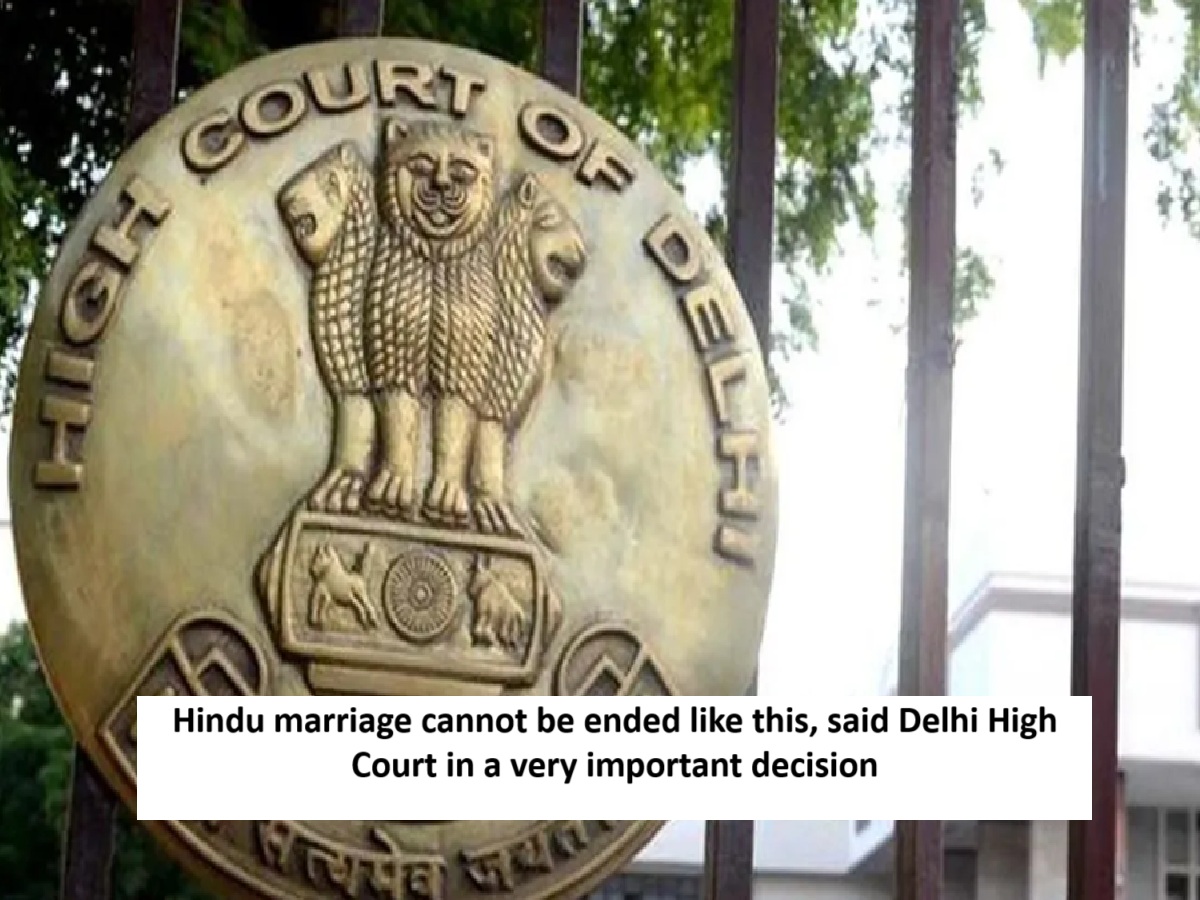
News Topical, Digital Desk : In an important decision, the Delhi High Court has said that a Hindu marriage cannot be ended by signing a talaqnama (marriage dissolution deed) in front of villagers or 'people of the society and witnesses'. The court clarified that there is no such legal system or principle under which a duly solemnized Hindu marriage can be ended in this way. According to a LiveLaw report, this decision was given by a division bench of Justice C. Hari Shankar and Justice Om Prakash Shukla. The bench said, ‘We do not know of any such law or rule under which a duly solemnized Hindu marriage can be ended by signing a talaqnama in front of the people of the village.’
What was the whole matter?
This case is related to a Central Industrial Security Force (CISF) constable, against whom disciplinary action was taken. It was alleged that he got married for the second time during his first marriage. The constable claimed that he had ended his first marriage by signing a divorce deed in front of the villagers on 15 October 2017. But the court rejected this argument.
The court said that the fact is undisputed that he got married for the second time during the first marriage. The court clarified, 'A valid Hindu marriage cannot be terminated in this way (by signing a divorce notice).' The court also said that under Rule 18 of CISF rules, if an employee marries for the second time after joining the job, it will be considered a violation of the rule. In this case, the constable was dismissed from the job for violating CISF Rule 182.
Why did the court reject the petition?
The constable had filed a petition in the Delhi High Court against his dismissal. But the court said that he had no solid defense. In its decision, the court cited an old case, Ex. Head Constable Bajir Singh vs Union of India. In that case too, compulsory retirement was given as punishment. However, in this case, the court said that since the petitioner had not completed the required service period for compulsory retirement, it is not possible to reduce the punishment. For this reason, the court rejected the petition.
--Advertisement--

 Share
Share



